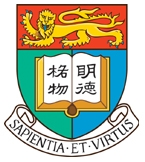Classical social theory
Offer semester
2nd semester
Lecture time
Thursday 13:30-15:20
Lecture venue
CPD-LG.09
Course description
What is meant by social order? How is order maintained? How does social change affect this order? What is the nature of the relationship between individuals and society? Sociologists have had a longstanding interest in these questions, dating back to the 1700s up to the present.
The purpose of this course is to examine these questions by introducing students to the classics in sociological theory. In particular, we will focus on the contributions of the “great masters” in sociology – Karl Marx, Emile Durkheim, and Max Weber. Each had a distinctive framework for explaining the rapid changes in society from Marx’s historical materialism to Durkheim’s structural functionalism and Weber’s interpretive historical sociology. Their work has been instrumental to the development of modern social theory.
We begin our discussion of the three European theorists with a review of the social historical context in which they wrote and then turn to their preoccupations, their theoretical assumptions about human nature, their methods of analysis, their major tenets, ideas, critiques of their work and implications for understanding contemporary times. We conclude with a comparison of these major theorists.
Course learning outcomes
Upon completion of the course, you will be able to:
- Identify the foundations of classical sociology and their historical origins and significance.
- Understand the relevance of classic theories to analyzing contemporary social problems and develop the students’ comparative skills.
- Sharpen the students’ analytic skills through group-based work.
Assessment
| Tasks | Weighting |
|---|---|
| Two short essays (15% each – total 30%) | 30% |
| Tutorial group project | 30% |
| Examination | 40% |
Required reading
Selected readings Marx (e.g., Capital), Durkheim (e.g., Division of Labor, Suicide), and Weber (e.g., Protestant Ethic and the Spirit of Capitalism, Power and Domination)
Recommended reading
The Wealth of Nations (Smith)
Discourse on Sciences and Arts(Rousseau)
 The University of Hong Kong
The University of Hong Kong